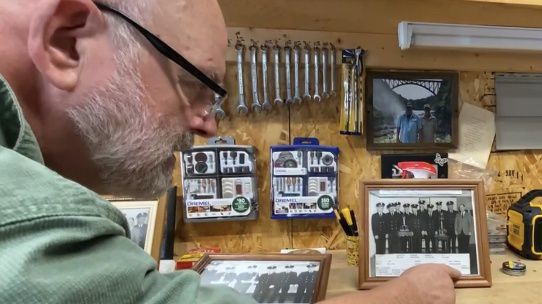Relatives of the prison employees killed during the Attica prison uprising in 1971 gathered outside the prison Wednesday to remember those they lost. They’re also waiting for one thing — an apology from New York state for the way the prison riot ended, one they’re not holding their collective breaths for.
The once-a-year gathering outside Attica Correctional Facility marks an occasion which, more than a half century later, is still painful. The remembrance honored the ten prison employees killed in the September 1971 Attica prison uprising.
Mark Cunningham read the names of the ten who lost their lives, including his own father, Corrections Sgt. Edward Cunningham.
“Back in 1971, for those who remember, we were told to keep our mouths shut and don’t talk to each other,” said Cunningham. “I remember that.”
That’s why the group of surviving family members formed the Forgotten Victims of Attica. To remember ten prison employees who died, nine of whom were hostages killed in a hail of bullets when law enforcement stormed the prison, ending the siege in it’s fifth day, including Harrison Whalen.
“We got up in the morning, had breakfast and you never knew that there was going to be the last time you saw him,” said Whalen’s daughter, Coreen Henning. “It is a very emotional day.”
Thirty two inmates also died in the Attica uprising — most, in it’s bloody end — some, credited with helping the hostages.
“There was a lot of terrible things that happened behind there,” said Cunningham, as he pointed toward the prison. “But there were a lot of inmates who did a lot of good things behind there. We can’t forget them either.”
For years, relatives of those who died in the Attica uprising have hoped for a formal apology from New York state, for the way the siege ended. They’re still waiting.
“Honestly, I don't think the apology is ever going to come,” said Henning. “And it's just words at this point. I'm not even sure it would be meant as it should be anyways, so I'm not holding my breath for that.”
Fifty two years still carries a lot of pain, but coming together to remember those lost is their duty.
“It is hard to come,” said Henning. “But I can't imagine not coming because I think it's really important that they're remembered and honored, and this is our way of doing that.”




